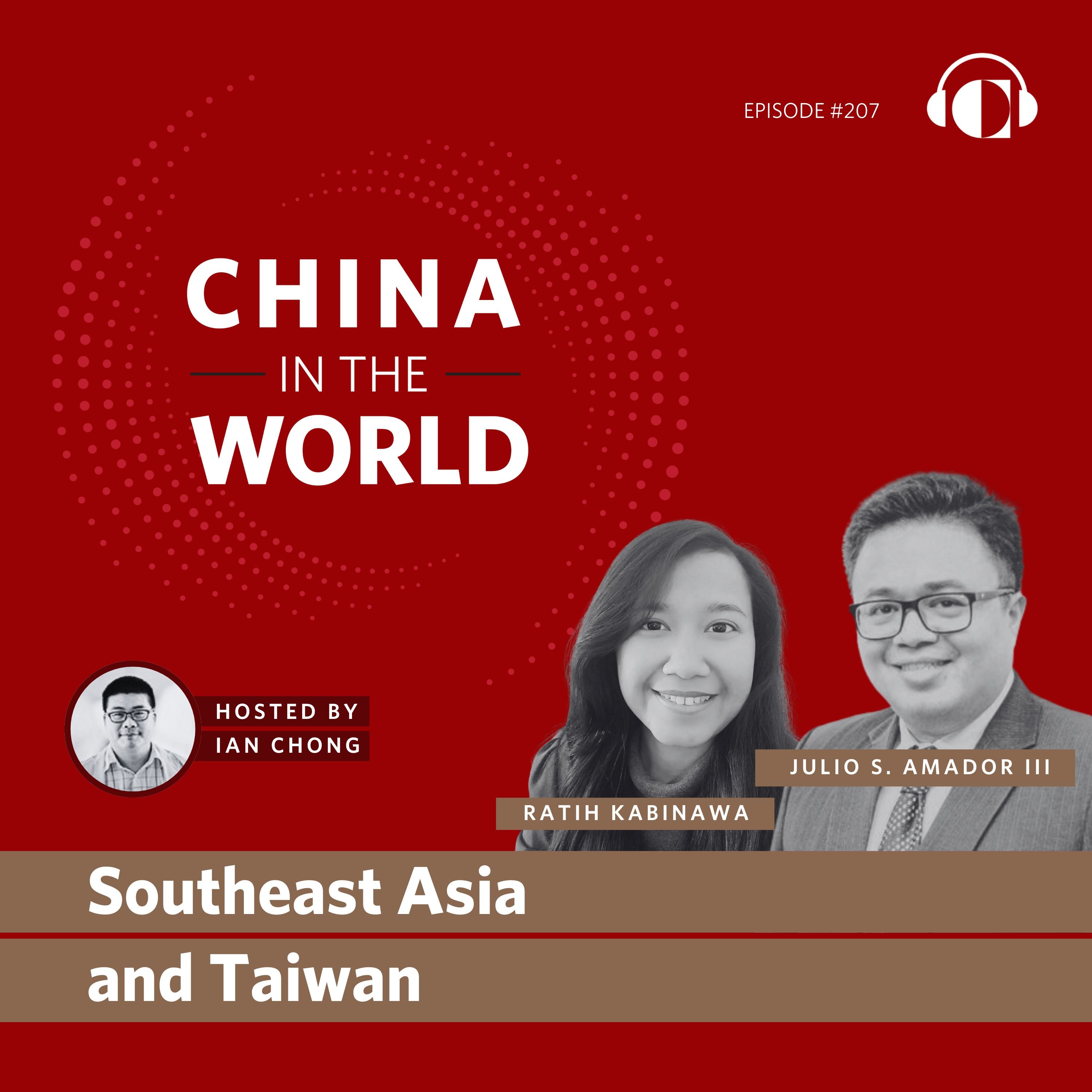
Deep Dive
Shownotes Transcript
In this episode of the China in the World podcast, Dr. Ian Chong speaks with Dr. Ratih Kabinawa, adjunct research fellow at the School of Social Sciences at the University of Western Australia, and Julio S. Amador III, executive director of the Philippine-American Educational Foundation, on Southeast Asia and Taiwan. The three scholars discuss how tensions over the Taiwan Strait affect Southeast Asia, and how the regional states and ASEAN look at the current dynamics.
Dr. Ian Chong is a nonresident scholar at Carnegie China, where he examines U.S.-China dynamics in Southeast Asia and the broader Asia-Pacific. He is also an associate professor of political science at the National University of Singapore.
Dr. Ratih Kabinawa is an adjunct research fellow at the School of Social Sciences at the University of Western Australia. She is a recipient of the Taiwan Ministry of Foreign Affairs 2024 Fellowship. Her research interests include transnational democracy, Taiwan’s international relations, Taiwan-Southeast Asia relations, and foreign policy of non-state actors. She is currently working on her first monograph on Taiwan’s use of informal diplomacy in Southeast Asia.
Julio S. Amador III is the executive director of the Philippine-American Educational Foundation, the interim president of the Foundation for the National Interest, and founder and trustee of the non-profit FACTS Asia. He previously worked in the Office of the President of the Philippines and served as deputy director-general of the Foreign Service Institute. He was a Fulbright scholar and was with the East-West Center in Washington.
